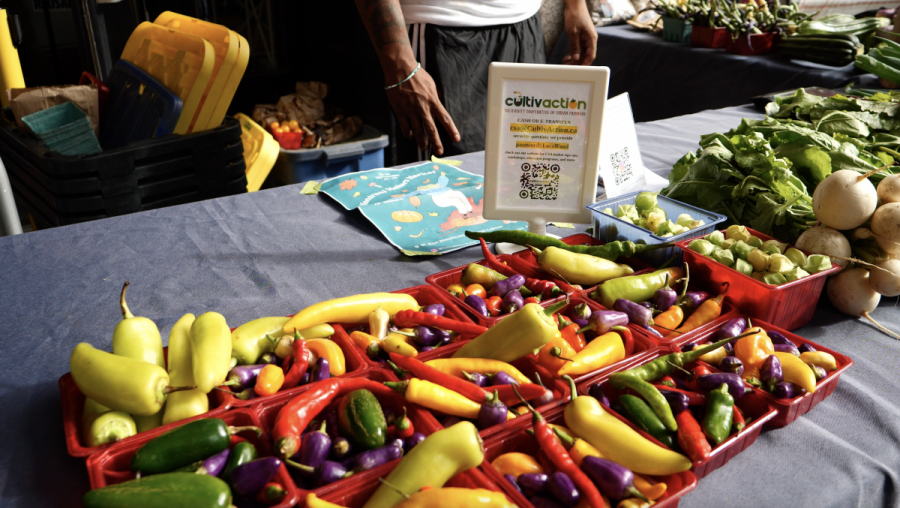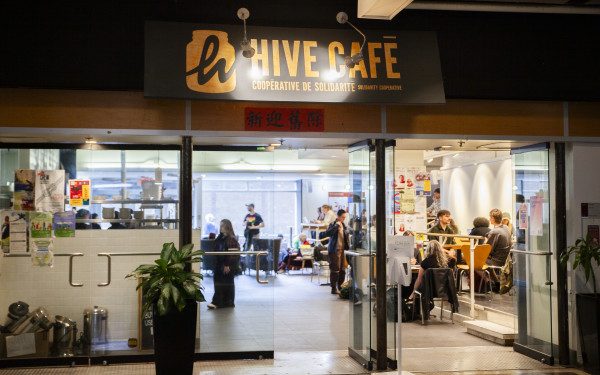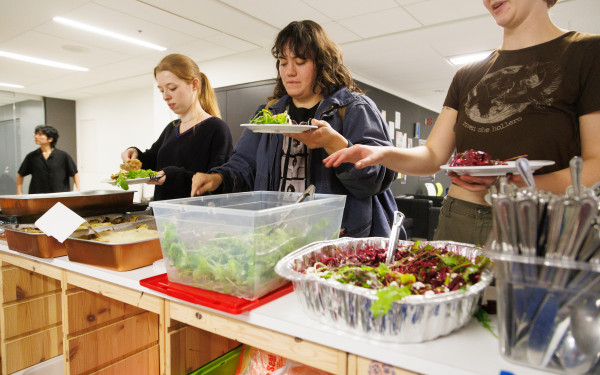CFC’s fight against food insecurity
Exploring initiatives and programs to address food insecurity on campus
As students face barriers to accessing affordable meals, organizations like the Concordia Food Coalition (CFC) aim to help students and provide essential support in the fight against food insecurity on campus.
“When we table on the mezzanine level of the Hall building, the common questions we receive from students are where to get access to free food on campus or how they can get involved in the food system,” said Maggie Morrison, education and food group development coordinator at CFC.
The CFC is worried about the economic, ecological, and social implications of the food system at Concordia. Its main goal is to build a community-centered food system at the university and with the surrounding communities. They achieve this through various initiatives including Concordia Farmer’s Market, and collaborating with programs such as the People’s Potato, the Hive Free Lunch and the Frigo Vert. CFC is working closely with them, from helping out where needed to organizing events, such as the Loyola Food Fair in the shared space with Hive Free Lunch.
The coalition is hosting numerous events during the winter 2024 semester. One of those events is a new series called Organizing Food Sovereignty, which collaborates with different campus food groups on a monthly basis, to bring students together around food-related events and activities. January marked the debut of Dinner and Documentaries, uniting students over food and community-themed films. The event, featuring the film “Gather,” was held on Feb. 21 at Frigo Vert, offering free vegetarian meals.
In addition, a new program partnership with Improove, a local food program in Montreal offers $15 anti-waste baskets to students with fresh fruits and vegetables. Students can pick up the baskets on Wednesday afternoon at the Frigo Vert or Thursday afternoon from the Hive Free Lunch space.
"The Concordia Food Coalition's initiatives are seriously shaking things up for us students. They're not just handing out food; they're giving us a way to dive into important food-related subjects with other students. It's nice to see these impactful changes happening right on our campuses,” said Jules Vaucelle, a film studies student who regularly comes by the Hive Free Lunch.
With the current food crisis and increasing grocery prices, the CFC finds it crucial to spearhead these new initiatives as students are struggling to afford three meals a day. According to CFC, events that are being held have proven to be very helpful to students. “Our events where food is available are the most popular ones,” said Morrison. “Our Fall Equinox Party at the Loyola campus with the farmer’s market and food groups was very popular, indicating that students do want to connect and eat together.”
Viktoriya Gritsayeva maintains a $50 food budget to help balance her expenses for both her apartment and tuition. “A lot of times I won’t even eat. I just have a cup of coffee and some nuts and then that’s it,” said Gritsayeva, a science foundation certificate student who was initially unfamiliar with the Hive Free Lunch at Loyola campus.
Gritsayeva isn’t the only one facing this situation. According to a study by Meal Exchange, 49.5 per cent of the respondents reported that they had to sacrifice buying food in order to pay for essential expenses such as rent, tuition and textbooks.
For students seeking to play an active role, CFC encourages students to volunteer by participating in campus food groups or attending educational events like the upcoming Organizing Food Sovereignty series.
“Food connects us all,” said Morrison. “If you’re interested in learning more about the food system, no matter what stage you’re at in terms of knowledge, get involved and know how it functions, and what your role is in it.”







